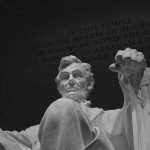We run our website the way we wished the whole internet worked: we provide high quality original content with no ads. We are funded solely by your direct support. Please consider supporting this project.

Reversing Babel
Several generations after the flood, we read in Gen 11 how humans were still living in one locale and had one common language and culture. Then someone came up with the brilliant idea that they should construct an enormous tower that would reach “to the heavens” in order to make a name for themselves and keep themselves unified (vs. 3-4). This project seems to have been intended as a false religious temple and was motivated by prideful people wanting to work their way up to heaven, perhaps to become gods themselves.
The Lord saw what they were doing and said, “If as one people speaking the same language they have begun to do this, then nothing they plan to do will be impossible for them” (vs 5-6). If humans succeeded in erecting this idolatrous temple, there would be no limit to the depth of evil they could sink to. Since God didn’t want humanity reverting back to the irredeemable state it experienced before the flood (Gen. 6:1-4), he gave them different dialects and scattering them to different parts of the globe (vs. 7-9). He apparently deemed a scattered humanity preferable in the short run to a unified humanity centered on a false, pride-based, religion.
All the different phenotypic and cultural differences we see among diverse people groups today can be traced back to this divine judgment. Grouped by common language, different tribes migrated to different parts of the globe and over time developed their own distinctive cultures. The different climates and environmental conditions the tribes migrated to naturally favored certain genetic characteristics over others. Moreover, different evolving cultural views of what were and were not considered attractive qualities in a mate further selected certain genetic characteristics over others. In this way the remarkably rich gene pool of original humanity was increasingly manifested in the variety of cultural and phenotypic differences.
Now, this cultural and phenotypic differentiation is not in itself a bad thing. To the contrary, like light being refracted into a variety of different colors through a prism (like a rainbow), the differentiation of the human gene pool reflects the beautiful creativity of God. However, in the power-oppressed, idolatrous environment of the fallen world, humans inevitably seize every possible thing they can grab and try to transform it into an idolatrous source of life. Subsequently some tribes began to view their own cultural and phenotypic uniqueness as superior to others.
This sense of tribal superiority was combined with the idolatrous craving for significance and security, creating zealous tribalism, patriotism, and nationalism. And in this way, the beautiful, God-glorifying diversity of humanity was tragically reduced to an occasion for ethnic conflict. Most of the blood spilled throughout history has been rooted in this idolatry.
Now let’s jump ahead to the New Testament, to the record of the day the Church was birthed. Jesus had told his disciples that, though he had to depart, he would not leave them alone to carry out his mission: he would send the Holy Spirit (John 14:26). Forty days after his ascension, on the day of Pentecost, this promise was fulfilled. As one hundred and twenty disciples were praying, the Holy Spirit came upon them and they all “began to speak in other tongues as the Spirit enabled them” (Ac 2:1-4).
What was particularly interesting about this episode is that there were people from many different countries visiting Jerusalem at this time, and they each heard the disciples speaking in their own native dialect (vs. 6-12). When the people inquired about what this meant, Peter explained that this was the fulfillment of the prophecy found in the book of Joel; “In the last days, God says, I will pour out my Spirit on all people” (Ac 2:17, emphasis added).
The very first thing that happened when the Church was birthed was that Babel began to be reversed and God’s vision of a re-unified and reconciled humanity began to be accomplished. This passage is teaching us that where the Spirit of God is present, where the reign of God is being established, and where the Church is being the true Church, Babel will be in the process of being reversed. Where the Spirit is working, the “one new humanity” that Christ died to establish will be in the process of being manifested.
In other words, what this passage reveals is that reversing Babel is one of the most fundamental distinctive marks of the Kingdom.
Our call as the people of God is to manifest this reversal, to put on display what humanity looks like when people are freed from getting life from the idol of tribalism that divides us. We no longer need to seek the benefits from whatever privilege the racially-structured society grants us. Instead we can use whatever privilege we might have on behalf of those whom the racially-structured society disadvantages. Our call is to manifest the beauty of a humanity that is freed of the idols of race, culture, and nationality. Our call is to preview the glory of the future Kingdom in which the diversity of races, cultures, and nationalities are brought together and celebrated around the throne of the lamb (Rev. 7). Our call is to reveal the beauty of a re-unified and reconciled race in which all people are willing to set aside their rights and sacrificially serve one another. Our call, in short, is to model God’s dream of Babel reversed, being people who reflect the beauty of the Triune God in the way they love each other.
Each inch of progress the Church makes in this direction pushes back and weakens the domain of ugly, oppressive, divisive tribalism where one group is pitted against another. This is the unique way we are to bear witness to the world and wage war on behalf of the world. And we trust that God will use our humble witness and sacrificial warfare to ultimately bring about his dream for a re-united and reconciled humanity around the globe.
Photo credit: The Daring Librarian via Visual hunt / CC BY-NC-SA
Category: General
Tags: Conflict, Love, Racial Reconciliation
Topics: Ethical, Cultural and Political Issues
Related Reading

The Sine Qua Non of the Kingdom
In contrast to the habit of judgment which I challenged in the previous post, God calls his people to love the way that God loves. But what exactly does this mean? People have a lot of screwy ideas about “love” today. We use the word “love” to mean a lot of different things, from sexual…

The Trinity and the Crucified God
God has always been willing to stoop to accommodate the fallen state of his covenant people in order to remain in a transforming relationship with them and in order to continue to further his sovereign purposes through them. This is revealed in the life and death of Jesus. Out of love for humankind, Jesus emptied…

Ferguson, Racism, & the Kingdom
In light of the issues that have arisen in Ferguson, Mo this last week (for more on this click here), we thought we would offer some reflections on this topic from Greg that he wrote several years ago. A version of this piece eventually ended up in Greg’s book Myth of a Christian Religion. ___________________________________ Many…

God is Not…
You just have to love this song by Gungor. Hope it blesses your socks off like it did us. (Thanks Jan Willem!)

An Uneasy History
Although Abraham Lincoln is widely regarded as a tireless champion for the equal rights of African Americans, there are many indications that he held views that we would find shocking today. It’s important to understand the reality of our history to truly appreciate the challenges we face in the area of racial reconciliation today. In…

Where Psychology and Theology Meet
Guest post by Ty Gibson The biblical narrative reveals that God bears our guilt—not merely in the penal sense that Reformed theology asserts—but in the sense that He bears our misconceptions of His character as we project our sins upon Him. To the degree that fallen human beings find it psychologically impossible to bear the…
